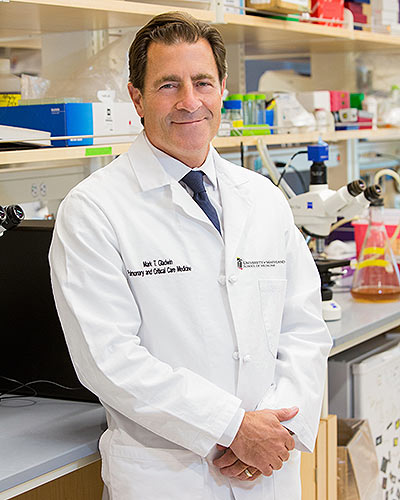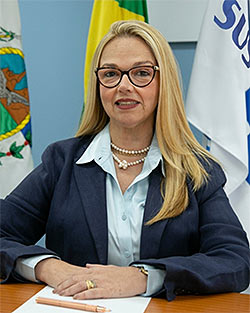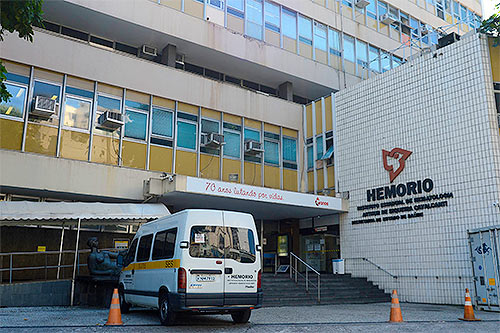Newswise — University of Maryland School of Medicine Dean Mark T. Gladwin, MD will join prominent scientists and government health officials this week at a Symposium in Rio De Janeiro, Brazil, to discuss new treatments for sickle cell disease (SCD). The disease, which afflicts 20 million people around the world, notably affects the Black community, reducing their average lifespan by 22 years.
Dr. Gladwin is currently heading a randomized multicenter clinical trial funded by the National Institutes of Health, that is being conducted across 22 sites in Brazil, France and the U.S. It is the largest clinical trial of its kind to test the effectiveness of a technique called red cell exchange transfusion in prolonging life and slowing or reversing end organ damage.
At the Symposium, taking place at HEMORIO, a hematology research and transfusion center in Rio De Janeiro, Dr. Gladwin will provide a medical overview of pulmonary hypertension in SCD and an update on enrollment in the clinical trial, called Sickle Cell Disease and CardiovAscular Risk - Red Cell Exchange Trial (SCD-CARRE), to date.
Dr. Gladwin will be joined by Dr. Claudia Mello, the Rio De Janeiro State Secretary of Health, along with Joice Aragão, the National Coordinator of the Brazilian Blood Program. Other presenters will include Luiz Amorim, General Director at HEMORIO; Clarisse Lobo, PhD, Clinical Research Specialist at HEMORIO; and Darrell Triulzi, MD, and Jude Jonassaint, RN from the University of Pittsburgh.
In the SCD-CARRE trial, 150 patients at high risk of dying from their sickle cell disease will be randomly assigned to receive either the standard of care alone or in combination with monthly red blood cell exchange treatments for one year. While blood transfusions are commonly used to treat acute complications in sickle cell disease, they can cause iron toxicity due to the presence of excessive red blood cells. In red cell exchange transfusion, the sickled red blood cells are removed and replaced with normal red blood cells, but the process is longer, more expensive, and requires more donor blood.
“Approximately 30 percent of patients with sickle cell disease develop serious organ damage, such as cardiopulmonary complications, and kidney or liver failure, with the risks steadily increasing with age,” Dr. Gladwin said. “The goal of the study is to determine whether red cell exchange can lower deaths, reduce hospitalizations, and slow down or reverse the development of major end-stage organ damage.”
Overall, Dr. Gladwin’s scientific work is focused on translational biochemistry and vascular biology, with a particular emphasis on nitrite and nitric oxide-hemoglobin interactions. With an active federally-funded research laboratory, Dr. Gladwin is engaged in studies and clinical trials centered around nitric oxide, nitrite, and vascular biology.
Dr. Gladwin has extensively studied a novel disease mechanism known as hemolysis-associated endothelial dysfunction. This groundbreaking research has identified a state of nitric oxide resistance in patients with conditions such as sickle cell disease, malaria, transfusion of aged blood, and other hemolytic disorders. This resistance is caused by the scavenging of nitric oxide by hemoglobin released into the plasma during hemolysis. Dr. Gladwin's studies have translated into clinical and epidemiological insights, leading to the recognition of a human disease syndrome called hemolysis-associated pulmonary hypertension, which is highly prevalent in individuals with sickle cell anemia.
Dr. Gladwin's contributions in the fields of vascular biology, nitric oxide, and nitrite research have had a profound impact on the medical community. His work has not only advanced our understanding of the intricate mechanisms underlying blood flow regulation and the role of reactive nitrogen molecules but has also translated into tangible therapeutic advancements. The development of intravenous, oral, and inhaled nitrite as potential therapies represents a significant milestone in the treatment of various conditions, including those related to hypoxia and hemolysis. These innovative therapeutic approaches offer promising avenues for improving patient outcomes and enhancing quality of life.



